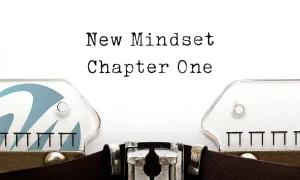Black History Month is a time for recognizing the extraordinary contributions, feats, and perseverance of Black Americans – where we celebrate the wonders of Black culture that are sources of strength, support, and inspiration.
While elevating this heritage of resilience and hope, it’s also important to recognize the shared experiences of Black Americans that affect a person's mental health. Stigma combined with racism, discrimination, trauma, adverse experiences, and structural inequities create what many recognize as a Black mental health crisis.
One meaningful way we can honor this month is by taking steps toward increasing awareness of and educating ourselves on the many intersections of mental health in the Black community.

Listen and Learn
According to the Health and Human Services Office of Minority Health, Black adults in the U.S. are more likely than white adults to report persistent symptoms of emotional distress, such as sadness, hopelessness, and feeling like everything is an effort. Yet only one in three Black adults who need mental health care receive it.
Data further show that the suicide rate for Black youth increased by 54% from 2018 to 2022, while a 17% decrease was observed for White youth. Black people also face a significant lack of representation in the mental health workforce, where only 4% of psychologists and 2% of psychiatrists in the U.S. are Black.
While many communities struggle with mental health and access to healthcare services, Black Americans continue to face unique challenges with mental health and wellbeing. These challenges have been rooted in historical oppression and systemic barriers – such as policies and laws that excluded Black people, disproportionally impacting health.
- PBS News Hour: More young, Black Americans taking their lives amid lack of resources, study finds (Part 1)
- PBS News Hour: Black Americans struggle with lack of mental health care access in communities (Part 2)
Behind the statistics are voices and lived experiences that shed light on how history shapes our present. When we actively seek out and listen to Black perspectives and stories, we take an important step toward greater understanding.
- Denver Public Library Special Collections & Archives | African American Colorado History: Memorable People and Events
- Mental Health America: Black Pioneers in Mental Health
- National Museum of African American History & Culture: Collections

Engage and Advocate
We know that relationships strengthen when we take time to listen and learn from each other. We can uplift Black mental health by using our voices and time to support and advocate for our friends and loved ones in the Black community.
Our actions and intent can lead to positive change and good. Yes, we might make mistakes, but as long as we keep an open mind and commit to learning, we can help to honor the experiences and voices of Black people in our community.
When we open our hearts and minds to others, there is a lot we can learn about ourselves. We may find areas of similarly experienced struggles and hardships that can create unity.
Maybe this means continuing to listen, recognize, and reflect on how mental health and race overlap:
It could also mean sharing resources for Black mental health and being prepared to support:
- 988 Lifeline: Black Mental Health
- Black Emotional and Mental Health Collective (BEAM)
- American Foundation for Suicide Prevention | L.E.T.S. Save Lives: An Introduction to Suicide Prevention for Black and African American Communities
It can further mean familiarizing yourself with initiatives and organizations in your backyard or throughout the state that are taking strides to make an impact for Black health:
There are many ways to honor Black History Month, and we encourage everyone to support and recognize Black culture, resilience, and joy. Black mental health matters, this month and every month.




